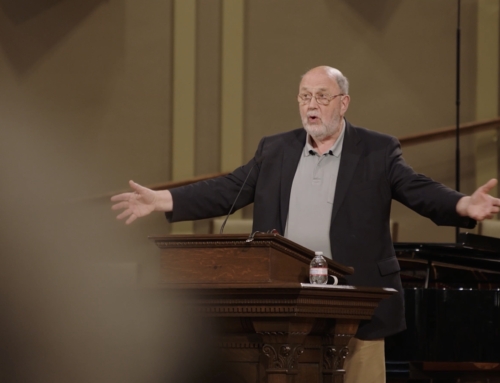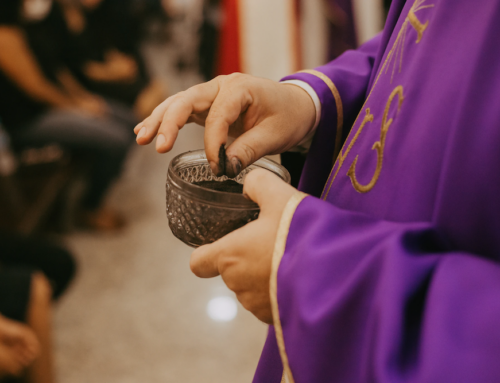Early reviews are in! We’re excited about our new course, Ethnicity, Justice, and the People of God, and so are our students.
In anticipation of next week’s launch, we want to share some of the feedback we’ve received. Student engagement helps us learn what aspects of a course students are most interested in, how courses might be useful for particular ministries, and areas for future theological reflection. We hope these reflections help you think more deeply about the course material and encourage you to consider the practical possibilities for enriching your life and the lives of others.
What Makes this Course Unique
One of the most unique aspects of this course, for us, was working with two scholars at the same time. This introduced technical challenges, like recording international zoom conversations, to be sure. It also gave us the opportunity to see how Prof. Wright and Prof. McCaulley emphasised different aspects of a single discussion. We hope they model the freedom and integrity with which academic discussion can take place.
From Nick and Shuba in the U.K
The style of presentation of this course is instructive, with a good helping of charisma: …the interweaving of their different backgrounds and experiences, the continental history juxtaposed with the American history, and two complementing and contrasting strategies and paces of delivery… Prof Wright’s excellence as a world class theological expositor and forthright style is matched by Prof Esau’s intellectual brilliance, measuredness, and clarity, with which the latter incisively examines the issues at stake for the listener. This course material is an extremely useful timeless reference manual I can return to as often as I need, in order to understand contemporary crises in society, and also as a resource for my ongoing preaching and teaching.
From Henk in the Netherlands
The combination of the two professors gives two different perspectives. However, they do provide a 1 and 1 = 3 result with a great depth. I often had to see lectures twice before I understood everything. Their different perspectives ensure that a much better picture emerges about what justice and ethnicity actually means. Their collaboration enriches historical reading in relation to justice commitment.
From Patrick in Uganda
I found the biblical frameworks that were presented to be very helpful. Though it was through the lens, time, and the context of the biblical narrative, it really helped me adapt it to my context. I could find situations in both Uganda and South Africa in which to apply God’s vision for justice within the church, to go against the presupposed and accepted divisions that exist. I liked (and was slightly amused by) the fact that Prof. Wright and Prof. McCaulley disagreed on certain aspects, such as the place of ethnic-based fellowships. The diversity of views also gives one the freedom to wrestle with other things one may disagree with.
What Biblical Theology is For
From Buddy in the U.S.
I thoroughly enjoyed this course and hope to see more like it in the future. I kept coming back to asking why this course engaged me so much, and I think the answer is, “Because that’s what the prior scripture-specific courses have been for.” I noted that most every Biblical context used in the present course had already been included in previous classes. This course – and hopefully future ones along these lines – bring those concepts to a sharp point where they can be used to “de-weaponize” what our culture today seems to have weaponized on issues of race and justice.
From Frans in the U.K.
We find ourselves in a world plagued by polarisation, with relational fault-lines widening with increasing devastation to communities victimised by the resulting injustices. Polarisation and relational separation are not what we have been created for. Quite the opposite. For this reason I am deeply thankful for the N.T. Wright Online tackling this issue with such depth of thought and substantial theological grounding. I’ve always maintained that the framework of Professor Wright’s theology is vital to discussions on injustice for a number of reasons, and those shone through with this course. What drew me to Professor Wright many years ago was seeing how he addressed the false liberal-evangelical dichotomy by providing a sound theological basis for the role of the church in God’s mission to save lost humanity and to restore and transform all of creation, including the social sphere. This provides the framework needed for seeing injustices in society as the responsibility of believers and the church to confront.
Does the Bible Speak to Current Issues?
While we certainly hope that you find ways to use every N.T. Wright Online course in your everyday life, we think Ethnicity, Justice, and the People of God is especially tailored to be put to wider use by our students. Our goal is to equip you, the People of God, for God’s New Creation.
From Marinda in Australia
What a great overview that draws the golden thread through the scriptures of how God worked towards His vision for all the nations. I’ve learnt so much here. In particular, I found the understanding that culture is not lost in unity enriching. Having said this, I realized it is often only when we experience a different culture that we start to appreciate injustices in our own. The other side can also be true: it is all too easy to point out perceived negatives in other cultures as an outsider. I’ve experienced this in so many ways since immigration. I’ve also learned that context and history matters, and that an outsider looking in can miss aspects that might explain things!
From Abby in the U.S.
For anyone who wonders if the Bible has anything relevant to say about the current pressing issues of social justice and racism, this course answers a resounding ‘YES!’ More than that, it is a wake-up call to the Church to ‘retrieve, renew, and rework’ social justice in our time as being vital to the witness of the Church to the watching world and vital to the Church’s understanding of what it means to be the people of God… If you are like me, this course may leave you wondering, shocked even, as to how you could have missed something so important for so long.
Ethnicity, Justice, and the People of God will be released February 17, 2022.
Click here to learn more and to watch the first video.
Jennifer Loop
Latest posts by Jennifer Loop (see all)
- Why You Need Lent: Two Perspectives - February 22, 2023
- How (Not) To Understand a Parable - October 20, 2022
- What People are Saying About ‘Ethnicity, Justice and the People of God’ - February 10, 2022







